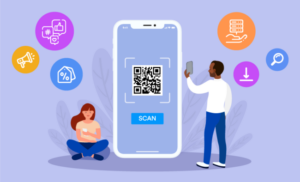
Introduction:
The advent of mobile applications, or apps, has transformed the way we interact with technology, bringing convenience, accessibility, and endless possibilities to our fingertips. Mobile apps have become an integral part of our daily lives, revolutionizing communication, entertainment, productivity, and various industries. This article explores the significance of mobile apps, their impact on society, and the key factors that contribute to their success in the technology landscape.
- The Rise of Mobile Apps:
Mobile apps have experienced explosive growth in recent years. The proliferation of smartphones, improved internet connectivity, and app marketplaces such as the Apple App Store and Google Play Store have fueled their popularity. Mobile apps provide users with direct access to a wide range of services, information, and entertainment, making them an indispensable part of our digital lives.
- Enhancing Convenience and Accessibility:
Mobile apps have revolutionized convenience by making tasks more accessible and efficient. Whether it’s ordering food, shopping, booking a ride, managing finances, or accessing information, mobile apps offer streamlined and personalized experiences. With a few taps on a smartphone, users can accomplish tasks that would have previously required significant time and effort.
- Transforming Industries:
Mobile apps have disrupted and transformed various industries, revolutionizing the way we interact with businesses and services:
a. E-commerce: Mobile shopping apps have revolutionized the retail industry, allowing users to browse, purchase, and track deliveries from the comfort of their smartphones. They have expanded market reach, personalized shopping experiences, and driven the growth of the online retail sector.
b. Transportation: Ride-sharing apps have revolutionized the way we hail and pay for transportation services. They offer convenience, transparency, and improved safety features, transforming the transportation industry.
c. Entertainment and Media: Mobile apps have changed how we consume entertainment and media. Streaming services, social media platforms, and news apps provide instant access to a wealth of content, connecting users to their favorite shows, music, social networks, and news outlets.
d. Finance and Banking: Mobile banking apps enable users to manage their finances, transfer funds, pay bills, and access financial services on-the-go. They have transformed traditional banking practices and introduced innovative solutions such as digital wallets and contactless payments.
- User Experience and Design:
Successful mobile apps prioritize user experience (UX) and intuitive design. They provide seamless navigation, responsive interfaces, and visually appealing layouts. Well-designed apps consider user feedback, leverage user-centric design principles, and prioritize simplicity and ease of use.
- Personalization and Customization:
Mobile apps leverage user data and preferences to offer personalized experiences. From tailored recommendations to personalized notifications, apps strive to provide content and features that align with users’ interests, behaviors, and preferences. This customization enhances user engagement and satisfaction.
- Continuous Innovation and Updates:
To stay competitive, mobile apps must continuously innovate and adapt to changing user needs and technological advancements. Regular updates introduce new features, improvements, and security enhancements, ensuring that apps remain relevant and meet evolving user expectations.
- Security and Privacy:
Ensuring the security and privacy of user data is paramount for mobile app developers. Implementing robust security measures, encryption, and privacy policies instills user trust and confidence. Regular security updates and prompt response to vulnerabilities are critical for maintaining user privacy and data protection.
Conclusion:
Mobile apps have become integral to our daily lives, providing convenience, accessibility, and personalized experiences across various domains. They have transformed industries, empowered businesses, and revolutionized the way we interact with technology. As the mobile app landscape continues to evolve, success lies in understanding user needs, prioritizing user experience, embracing innovation, and safeguarding user privacy and security. Mobile apps will continue to shape our digital future, enabling us to access services, connect with others, and enhance our productivity and enjoyment with just a tap on our smartphones.







